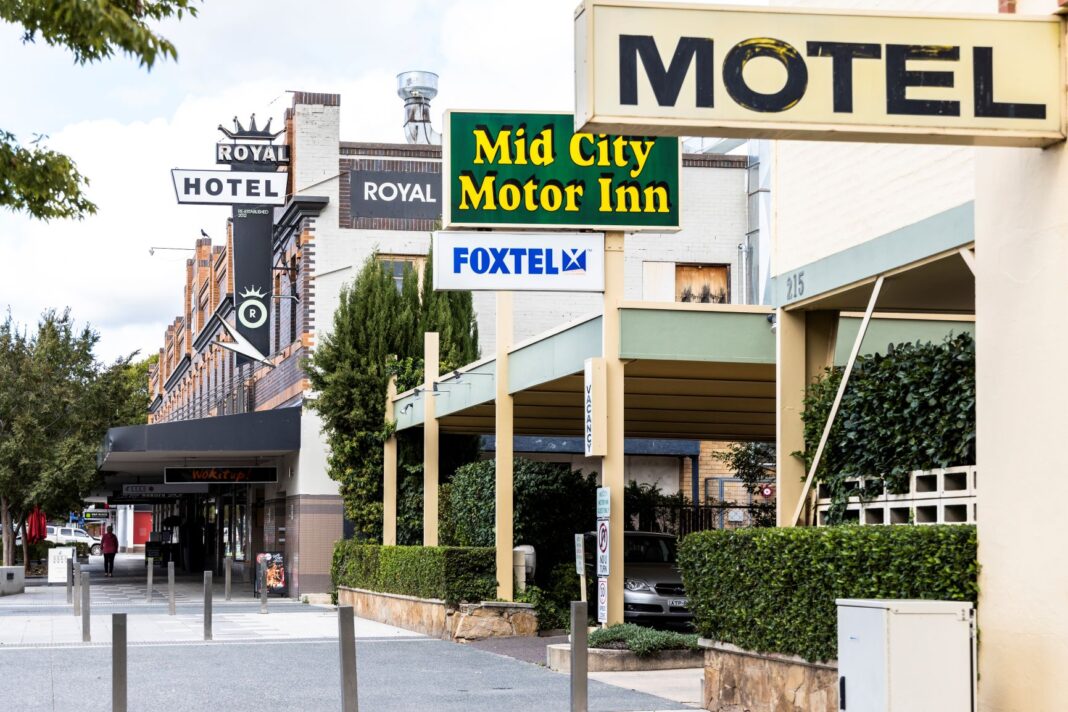Canberra Liberals leader Alistair Coe wants to fund an ambitious election spending schedule by enticing “Canberra refugees” to move back to the capital from Queanbeyan and surrounding NSW townships.
A key message of the Canberra Liberals election campaign this year has centred on making “the ACT to be the best place to live, work and raise a family” by “delivering lower taxes and better services for all”.
“Too many people are being priced out of Canberra. We don’t think it’s fair that so many Canberrans are finding it so hard to live in this city,” Mr Coe said this week.
To reduce cost of living, the Canberra Liberals have promised to freeze household rates and deliver 1,200 affordable homes over four years.
They have also promised to lower the cost of private car registration to NSW levels, creating a saving of almost $100 per vehicle per annum – which would remove $25 million a year from their budget.
In addition to those concessions, the Liberals have also announced they will spend $40 million on road maintenance works and $50 million creating new parking spaces across Canberra; on top of works to make the ACT’s entire cycle path network road-free by 2030.
There will also be an expansion of bus services, reinstatement of school buses, and the purchase of 19 new buses.
The Liberals have also promised “fairer funding” for schools, with $16.8 million going to Canberra Catholic schools and no reductions in funding for government schools.
“It’s very important that we deliver better services for Canberrans, and it’s of course absolutely vital that we lower the cost of living in this city,” Mr Coe said.
Pressed on how the Liberals would fund their policies, Mr Coe said he would bank on those living over the border to return to a more affordable Canberra and hence provide the adequate revenue.
“By having more people living in this city, instead of pushing them over the border into NSW, we will actually have more taxpayers, we’ll have more ratepayers, we’ll have a bigger economy, and therefore we will have more resources to deliver the services we know Canberra will need,” Mr Coe said.
Mr Coe said ABS data shows there is a net migration to Queanbeyan from the ACT in “that critical family-age cohort”.
“It’s very clear for anybody who goes out to the Googong display office, or you go out to Murrumbateman, Jerrabomberra, South Jerrabomberra,” he said.
“You look at what’s happening in Sutton, Bungendore and Braidwood, and there are a lot of Canberra refugees there.
“These are people that are seeking cheaper housing, people that are looking for an affordable way of living.”
Population growth not a ‘one-way equation’
An ACT Labor Canberra-Queanbeyan analysis provided to Canberra Daily disputes Mr Coe’s assertion regarding cross-border migration.
Their data shows that in the last five years, the population for the entire Queanbeyan-Palerang Council – which incorporates Queanbeyan, Braidwood and Bungendore – has grown by 4,563 people or 8.1%, while Canberra’s population has grown by 37,350 or 9.6%.
“In practical terms, the ACT population has been growing faster than the rest of Australia through most of the last five years,” ACT Chief Minister Andrew Barr said.
For 18 of the last 19 quarters, more residents have moved from NSW to the ACT than from the ACT to NSW.
From June 2015 to December 2019, a total of 57,413 people moved from NSW to the ACT, compared with 53,723 people moving from the ACT to NSW, representing net migration of 3,690 to the ACT.
Mr Barr said a greater population means a greater demand on service provision in the ACT.
“The numbers that would be required to pay for (Mr Coe’s) already extravagant promises would require Canberra to be significantly larger than it is now, like by a quantum of 50% or more.
“It’s not just that you get revenue from those people, you also have to provide services to them and that increases your expenditure … it’s not a one-way equation.”
Federal funding via the Commonwealth Grants Commission does provide a financial adjustment to the ACT to account for some of the cross-border services provided to the surrounding NSW region.



